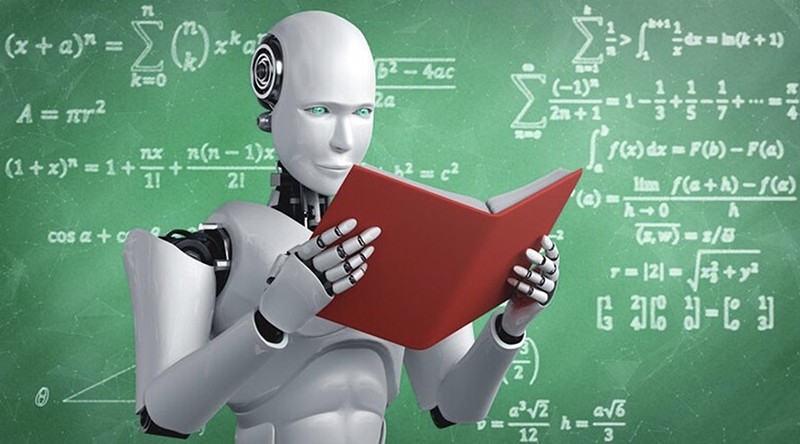
Artificial Intelligence in Education: Understanding AI to utilize effectively
Latest
AI's potential in education is immense
In June 2023, UK Prime Minister Rishi Sunak highlighted at London Tech Week that AI could enhance personalised student learning experiences. Following this statement, the public began to notice AI's potential in education.
As Prime Minister Rishi Sunak said, AI can make the learning process more personalised. AI will analyse each student's learning process based on data such as study time, achieved grades, level of understanding per lesson, per subject, and more. Consequently, it can provide learning materials and question banks tailored to each individual's needs, capabilities, and learning styles. This aids learners in studying at customised paces to enhance the learning process effectively.
 |
| The potential of AI in education is immense (Source: Internet) |
Furthermore, AI introduces new learning tools such as chatbots, intelligent learning systems, and virtual teachers. Previously, if students needed help to grasp a lesson, they had to wait until class to seek the teacher's assistance. AI offers immediate support, allowing students to inquire anytime, anywhere, creating the best learning experiences and fostering a positive learning environment.
AI technology also enables flexible learning. Through AI-optimised online learning platforms and applications, learners can access educational materials and lectures remotely. This opens doors to learning without geographical limitations, empowering learners to manage their study time independently.
AI not only brings learning potential to students but also assists teachers in efficiently managing and operating classrooms. It supports teachers in creating automatic quizzes and lesson ideas and helps assess students' learning progress and grades quickly and comprehensively. Consequently, teachers can devote more time crafting engaging activities in each class, enhancing teaching quality without excessive grading. AI can also automate various administrative tasks, allowing teachers more time for specialised tasks.
Understanding AI to utilise it effectively
Presently, the integration of AI into teaching is being adopted by many countries in their educational programs. For instance, South Korea has introduced AI-based systems to tailor homework based on students' understanding levels. In India, the educational technology company Embibe employs AI to explain complex scientific and mathematical concepts. In Finland, AI is integrated into education systems through free online courses and instant feedback platforms like ViLLE.
However, AI also raises concerns for many teachers, parents, students, and educational managers regarding issues such as job loss in traditional education sectors, data security, privacy, and the risk of excessive dependence on technology.
Nevertheless, it's crucial to understand that AI in education isn't about humanoid robots replacing teachers but using intelligent technology to aid both teachers and students. Therefore, educators, students, and parents need to understand AI to use it effectively instead of fearing it.
Recently, Khan Academy Vietnam has finished localising the "AI for Education" course designed for educators, parents, and students. Collaborating with leading experts and edtech “giants” like Code.org, Common Sense Education, aiEDU, and Professors Ethan and Lilach Mollick, the course comprises 12 lessons (16 videos and 17 theoretical readings). It provides foundational knowledge about artificial intelligence (AI), including concepts, operations, benefits, challenges, and risks that AI brings to our lives. Additionally, the course equips teachers, parents, and caregivers with the necessary knowledge to guide and assist children and students in using AI correctly and safely in their learning through lesson plans and guidance on organising AI-related learning activities for students.
Notably, the course is highly suitable for the teaching staff as it introduces methods to apply AI in teaching, creating fun, personalised, interactive, and engaging learning experiences. All of that helps to promote students' learning, save time and reduce work pressure for teachers, empowering them to navigate confidently in this rapidly changing era of AI.
The free “AI for Education” course at: https://vi.khanacademy.org/college-careers-more/ai-trong-giao-duc













